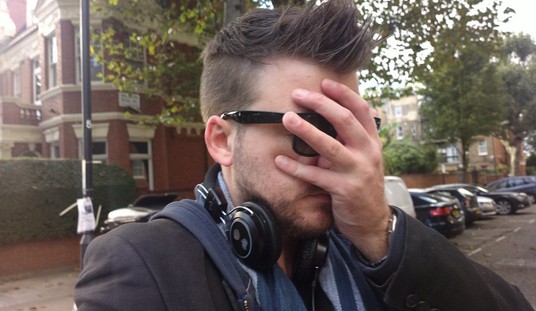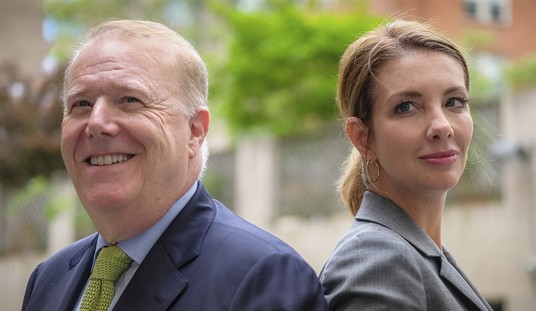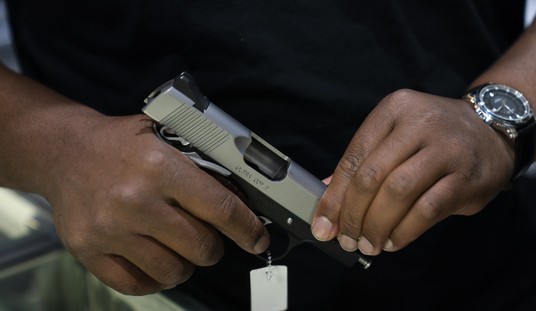The classical definition of a hero is a person who puts himself at risk for the benefit of others. That certainly describes Adolfo Calero, who died June 2 at the age of 80. The obituaries of this remarkable man hardly do justice to his courage, perseverance, faithfulness and humility.
Here is the Adolfo Calero I knew, admired and called a friend for nearly three decades:
A graduate of Holy Cross High School in New Orleans and the University of Notre Dame in South Bend, Ind., he was a devout Roman Catholic and educated to be a businessman, not a soldier. But after he was jailed twice by the Somoza regime and then by the Marxist Sandinistas, who overthrew the Nicaraguan dictator in 1979, Calero quietly joined the armed resistance in an effort to liberate his country. Threatened with arrest for anti-regime activities in 1982, he and his family escaped and watched from exile as the Sandinistas seized their property. The following year, he was chosen by his countrymen to lead the Nicaraguan Democratic Force, or FDN. By 1984, it had become the largest insurgent army ever fielded in the Western Hemisphere — more than 20,000 freedom fighters under arms.
Most of Calero’s all-volunteer counterrevolutionaries were poor but fiercely independent farmers and indigenous Christian Miskito, Suma and Rama Indians with no military experience. Destitute and hounded, they fled Sandinista tyranny, Soviet-style “collectivization” and police-state repression for sanctuaries on Nicaragua’s borders. I first met Adolfo at one of these encampments early in 1983. While walking among the fighters and their families, he made a passionate, emotional appeal for food, medical support, clothing, shelter and arms to “help these brave people resist the regime in Managua from spreading their ‘revolution without frontiers’ throughout this hemisphere.”
This wasn’t just rhetoric for the visiting “gringos.” Calero meant it — and lived it. His integrity, wisdom, steadfast resolve and fidelity to the cause of freedom were crucial to building and sustaining an unprecedented political-military organization committed to a democratic outcome in his homeland. It worked.
Despite eight years of on-again, off-again support from the U.S. and other governments, his Contras forced the Soviet bloc/Cuban-supported Sandinistas to the negotiating table and to agree to an internationally supervised secret ballot. Thanks to Adolfo and those he led, the Marxists were defeated in the freest and fairest elections in Nicaraguan history. So great was Calero’s credibility among his countrymen that when he asked his soldiers to lay down their arms, they did.
Their victory came at a heavy price. Thousands of his Contras were killed and maimed during their quest for freedom. The long fight also took a heavy toll on Adolfo and his family. From 1983 to 1989, he traveled incessantly to rally political and financial support for his Nicaraguan Democratic Resistance throughout Latin America, to European capitals and to Washington — home of his most fervent supporters and critics.
Though Calero accepted assurances that his troops would not be abandoned in the field, he asked for a personal audience with the man who had promised to sustain them “body and soul” — President Ronald Reagan. A private, “off-the-books” White House meeting was arranged in 1985, and during the session, Adolfo gave the president an FDN lapel pin. President Reagan turned to the camera and said, “I’m a Contra, too.”
On one occasion in the mid-1980s, I flew to Miami to visit him when he was briefly hospitalized for exhaustion and respiratory distress — the malady from which he eventually succumbed. But when I arrived, he wasn’t in his hospital bed. I found him in a visitors waiting room lecturing a group of obstetricians, pediatricians and nurses — many of them children of Cuban refugees — on why they should volunteer to come to Honduras on weekends to treat the families of his anti-communist combatants. His powers of persuasion were such that many of them did just that.
After Congress barred the CIA from assisting the Contras, I accompanied Adolfo on numerous visits to the Contra camps along the Honduras-Nicaragua border. He ignored frequent and credible intelligence about Soviet, Cuban, Sandinista and even Palestinian assassination plots, eschewed an offer of a phalanx of bodyguards and insisted on attending memorial services for his fallen fighters at their bases.
One of my enduring memories of Calero is captured in a photo of him taken at a border camp in 1985, listening to one of his young “column” commanders. Adolfo was then just 54 years old and armed only with a pistol. The image is on the cover of his book “Cronicas de un Contra” (“Chronicles of a Contra”). The work is more than a saga of extraordinary courage and commitment. It also provides the only accurate list of those Adolfo credits with “winning against the communists” — his field commanders.
In the aftermath of the victory he had forged, Adolfo and his family braved death threats and returned to Nicaragua to rebuild their lives and reclaim their home, though much of the Calero property never was returned. Until his health began to fail early this year, Adolfo remained active in Nicaraguan politics and diplomacy — and, most importantly, as a forceful, articulate advocate on behalf of his FDN veterans and their families.
The epitaph for the Adolfo Calero I knew ought to read: “He fought the good fight. He finished the race. He kept the faith.”








Join the conversation as a VIP Member